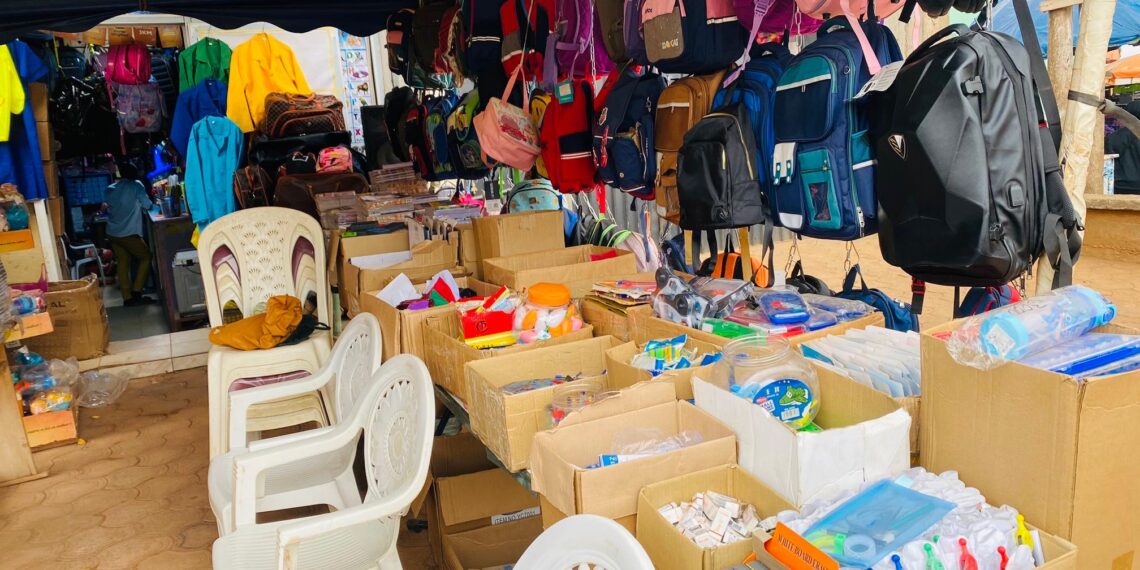“Parents will wait until the last minute before rushing to the market. By then, prices will be higher, and we know they will have no choice but to buy,” says Nkomi Brice, a vendor.
As the new academic year approaches, some parents and students have started preparing for the usual back-to-school shopping rush, unlike others. However, this year, a mix of economic uncertainty and strategic buying advice from vendors is shaping how families approach their purchases. In local markets like the Essos market in Yaoundé, shop owners like Nkomi Brice urge parents not to delay their shopping.
“Prices have not gone up yet, but they will,” Brice says. “Every year, parents wait until the last minute, and when prices rise, they have no choice but to pay. It’s not advice just common sense. Smart parents will start buying one month before back-to-school.” His message is clear: procrastination could cost families more in the coming weeks. Yet, not all parents are rushing to stores. George Yves, a father of three, hesitates as he looks over school supply lists. “Things are hard right now,” he admits.
“At first, I could sell 200,000 FCFA a day, but now I sell 65,000 FCFA a huge loss. With the presidential election coming on October 12, people are holding onto their money. Business is slow, and that affects my ability to keep up with back to school needs.” The upcoming election has cast a shadow over household budgets. Many families are wary of spending too soon, fearing economic instability or policy changes that could affect prices and incomes.
Small business owners report slower sales as customers adopt a “wait and see” approach, unsure of what the political climate will bring. Some parents even admit they may have to prioritize rent and food over brand new school supplies if financial pressures worsen after the vote.
Despite these concerns, schools are moving forward with their academic plans. Some institutions are introducing minor changes, such as updated digital learning tools and repainted school premises, but the biggest shift remains in how and when parents choose to shop.
Vendors are counting on the traditional last-minute buying , while financially strained families weigh their options carefully. For now, the message from sellers remains firm, buy early to avoid higher prices later. But with economic pressures mounting, not every parent can follow that advice.
As the school year draws closer, the real test will be whether families can navigate these challenges while ensuring their children have everything they need for a successful start.





































































